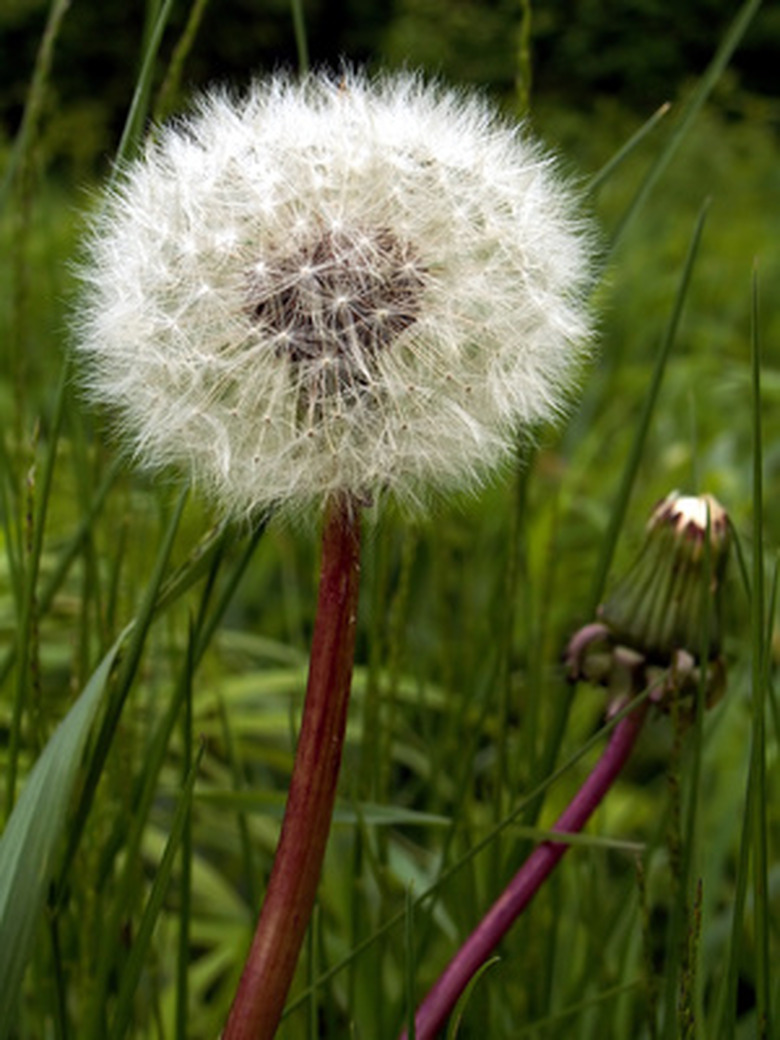Common Types Of Lawn Weed In East Tennessee
Lawn weeds give home gardeners headaches. You get rid of them, and they come right back. The best practice for keeping lawn weeds under control is to keep a lush, healthy lawn. Don't give weeds any room to grow. Proper mowing practices, water management and fertilization are keys to snuffing out lawn intruders. This is easier said than done, however. Take the mystery out of lawn management by learning which weeds attack the yard and when.
- Lawn weeds give home gardeners headaches.
- Take the mystery out of lawn management by learning which weeds attack the yard and when.
Summer Broadleaf Annuals
The good thing about annual weeds is that they are only around for one year. The bad news is that they are prolific seed producers and distributors. Summer annuals generally germinate in spring and grow during the summer. They are dead by first frost, but by then, they've spread their seeds all over eternity. Summer annuals are best controlled by the application of pre-emergent herbicides in the late winter and early spring, before they germinate. Some of the most problematic summer annual broadleaf weeds in East Tennessee are: Knotweed, spurge, ragweed, carpetweed, horsenettle and bedstraw.
Winter Broadleaf Annuals
Winter annuals, like their summer counterparts, complete their life cycles in just one year. But they die and distribute their seeds by early summer. Henbit, deadnettle, chickweed, buttercup and Carolina geranium are common in East Tennessee lawns. Winter annuals are present, but go dormant over the fall and winter, so broadleaf herbicides are generally ineffective during this time. Apply selective, post-emergent weed killers in early spring to rid the lawn of these culprits.
- The good thing about annual weeds is that they are only around for one year.
- Winter annuals are present, but go dormant over the fall and winter, so broadleaf herbicides are generally ineffective during this time.
Perennial Broadleaf Weeds
Whether simple or complex, perennial weeds manage to live for more than two years by a number of means. Taproots, stolons, rhizomes and the like make them the hardest to control. East Tennessee gardeners who have battled wild onions, dandelions, clover, ivy, curly dock, buttonweed, and wild violets know this well. Like other perennial plants, they go dormant during winter months, but emerge again when conditions are right. A combination of systemic, selective post-emergent herbicides and good lawn fertilization is the best control.
Grassy Weeds
Annual grass weeds like crabgrass, goosegrass and foxtail are best controlled by pre-emergent herbicides applied in late winter and early spring. Many lawn treatments are advertised as containing "crabgrass preventers." Annual bluegrass is a winter annual that grows rapidly along curb and street edges of lawns and is nearly impossible to control due to its life cycle and biological makeup. It often goes unnoticed until it begins to brown and sprout seed heads in early summer before succumbing to the heat. Perennial grass weeds like bermudagrass and dallisgrass tend to take over large sections of lawn by late summer before going dormant at first frost. This makes them easy to locate and target in East Tennessee. Spray entire patches with a non-selective herbicide (such as Round-Up) in late September. Rather than going dormant, the weeds will die. Mow the browned area to the ground and re-seed the area with a fescue turfgrass.
- Whether simple or complex, perennial weeds manage to live for more than two years by a number of means.
- Annual grass weeds like crabgrass, goosegrass and foxtail are best controlled by pre-emergent herbicides applied in late winter and early spring.
Sedges
Yellow and purple nutsedges are common in East Tennessee and cause more frustration for homeowners because they never seem to die with the other weeds. Sedges have triangular stems, and are not grasses, which possess circular or flat stems. Therefore, herbicides meant for grasses won't harm sedges. Purchase and apply post-emergent herbicides specially formulated to target these weeds, and you'll have better success.
